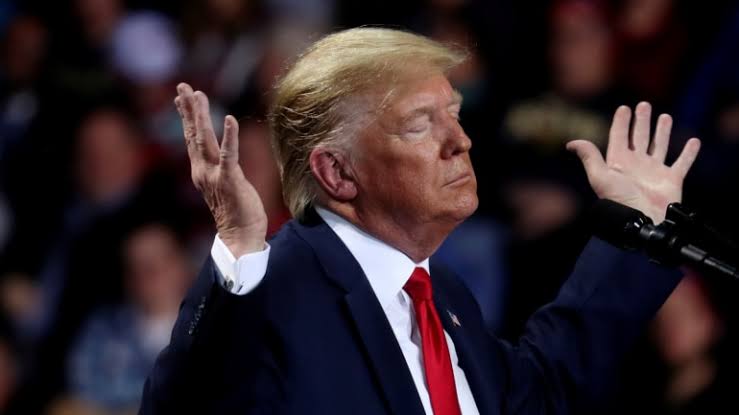The Democratic-led House passed the abuse of power article of impeachment on a largely party-line 230-197 vote. The House then proceeded with a vote on a second article of impeachment charging him with obstruction of Congress.
The House action sets the stage for a trial next month in the Republican-controlled Senate — friendlier terrain for Trump — on whether to convict him and remove him from office. As the House voted, Mr. Trump was addressing a rally in Battle Creek, Michigan.
No President in the 243-year history of the United States has been removed from office by impeachment. That would require a two-thirds majority in the 100-member Senate, meaning at least 20 Republicans would have to join Democrats in voting against Trump — and none have indicated they will.
Mr. Trump, who is seeking another four-year term in the November 2020 presidential election, has called the impeachment drive an “attempted coup” by Democrats seeking to nullify his 2016 election victory. The Senate's top Republican, Mitch McConnell, has predicted there is “no chance” his chamber will remove Mr. Trump when it holds its trial.
Democrats said Mr. Trump held back $391 million in security aid intended to combat Russia-backed separatists and a coveted White House meeting for Ukrainian President Volodymyr Zelenskiy as leverage to coerce Kiev into interfering in the 2020 election by smearing Biden.
The second article accuses Mr. Trump of obstruction of Congress by directing administration officials and agencies not to comply with lawful House subpoenas for testimony and documents related to impeachment. Mr. Trump has denied wrongdoing and called the impeachment inquiry, launched by House Speaker Nancy Pelosi in September, a ”witch hunt.”
The impeachment vote comes ahead of Mr. Trump's 2020 re-election campaign, which will pit him against the winner among a field of Democratic contenders, including Mr. Biden, who have repeatedly criticised Mr. Trump's conduct in office and promised to make it a key issue.
Reuters/Ipsos polls show that while most Democrats want to see him impeached, most Republicans do not. Televised hearings last month that were meant to build public support for impeachment appear to have pushed the two sides further apart.
The House vote on Wednesday was just the latest, but also unquestionably the biggest, in a string of controversies that have buffeted the turbulent presidency of the New York real estate mogul and former reality TV personality.
Central to the impeachment inquiry was a July 25 telephone call in which Mr. Trump asked Mr. Zelenskiy to investigate Mr. Biden and his son Hunter Biden, who had joined the board of Ukrainian energy company Burisma while his father was U.S. Vice President.
Mr. Trump has accused the Bidens of corruption without offering evidence. They have denied wrongdoing.
A rough transcript of the call released by the White House showed Mr. Trump asking Mr. Zelenskiy, elected only three months earlier and eager for American support, to “do us a favour” and conduct the investigations in coordination with his personal lawyer Rudy Giuliani.
Mr. Giuliani in the prior months had engaged in a concerted effort to persuade Ukraine to carry out the investigations. Testimony before House committees showed that Mr. Giuliani helped engineer Mr. Trump's removal last May of the U.S. ambassador to Ukraine, who was perceived as a roadblock to those investigations.
Impeachment is a remedy devised by the United States' founders, wary of a monarch on American soil after breaking away from Britain and King George III in the 18th century, to enable Congress to remove a President who has committed “high crimes and misdemeanors.”
Only two previous presidents have been impeached. The House in 1998 impeached President Bill Clinton on charges of perjury and obstruction of justice arising from a sexual relationship he had with a White House intern, but the Senate acquitted him. The House impeached President Andrew Johnson in 1868, focused on his removal of the secretary of war, but he was acquitted by one vote in the Senate.
In 1974, President Richard Nixon resigned after the House Judiciary Committee approved articles of impeachment in the Watergate corruption scandal but before the full House could pass them.
Leave a comment
Your email address will not be published. Required fields are marked *


